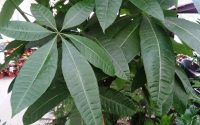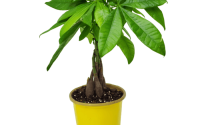JNF Plant a Tree in Israel Greening the Desert
Social and Economic Aspects of JNF’s Work: Jnf Plant A Tree In Israel
Jnf plant a tree in israel – JNF’s tree planting initiatives in Israel go far beyond environmental benefits; they significantly impact the social and economic fabric of the country, fostering community development and boosting the national economy. These projects aren’t just about greenery; they’re about building a stronger, more prosperous Israel.
Job Creation and Improved Quality of Life in Local Communities
JNF’s afforestation projects create numerous jobs, from planting and maintaining trees to managing nurseries and conducting research. These opportunities are often located in rural areas, providing much-needed employment and boosting local economies. Improved air quality, enhanced landscapes, and increased recreational opportunities resulting from JNF’s work also contribute to a higher quality of life for residents in surrounding communities.
For example, the creation of new parks and green spaces provides areas for leisure activities, improving physical and mental well-being. The economic activity generated supports local businesses, creating a ripple effect throughout the community.
Economic Benefits from Afforestation: Tourism and Agriculture
The increased green spaces created by JNF’s work have a demonstrable positive effect on tourism. Beautiful landscapes attract visitors, boosting local hospitality businesses, and generating revenue for the region. Moreover, afforestation efforts often improve agricultural yields. Trees act as windbreaks, protecting crops from damage, and help retain soil moisture, leading to increased productivity in surrounding farmland. This increased agricultural output translates into higher incomes for farmers and contributes to Israel’s food security.
The economic benefits extend beyond immediate gains; long-term investment in sustainable forestry leads to ongoing returns for the country.
Challenges and Opportunities for Long-Term Sustainability, Jnf plant a tree in israel
Maintaining the long-term sustainability of JNF’s projects requires careful planning and ongoing management. Challenges include combating climate change impacts such as droughts and wildfires, ensuring the long-term health of planted trees, and adapting to changing environmental conditions. Opportunities lie in developing innovative techniques for water conservation, employing resilient tree species, and incorporating community involvement in ongoing maintenance. Investing in research and development to find the most effective and sustainable methods will be crucial for long-term success.
For example, the development of drought-resistant tree species is vital in ensuring the longevity of these projects in a region prone to water scarcity.
Case Study: The Transformation of the Negev Desert
The transformation of parts of the Negev Desert through JNF’s extensive tree planting projects serves as a powerful example of socio-economic impact. Previously barren land has been transformed into productive agricultural areas and thriving ecosystems. This has created jobs in agriculture, tourism, and related industries, revitalizing local economies and improving the quality of life for residents. The increased biodiversity has attracted wildlife, further enhancing the ecological and economic value of the region.
The establishment of new settlements and the growth of existing ones demonstrate the significant social impact of JNF’s efforts in this area. This demonstrates the long-term benefits of strategic afforestation projects.
JNF’s Tree Planting and Israel’s National Identity
JNF’s tree planting initiatives are deeply intertwined with Israel’s national identity and cultural heritage. The act of transforming a land historically associated with aridity and scarcity into a flourishing landscape embodies the spirit of renewal and nation-building. The widespread participation in tree planting events fosters a sense of collective responsibility and national pride. The forests created become symbols of resilience, perseverance, and the enduring connection between the Jewish people and their land.
This is visible in the many national parks and nature reserves established on land previously barren.
FAQs
What types of trees does JNF primarily plant?
JNF carefully selects tree species based on the specific environmental conditions of each region, prioritizing native and drought-resistant varieties.
How can I personally participate in JNF’s tree planting efforts?
You can donate to JNF, participate in organized tree-planting trips to Israel, or even sponsor the planting of a tree in your name.
What are the long-term maintenance plans for the planted trees?
JNF employs ongoing maintenance programs, including irrigation, pest control, and monitoring to ensure the long-term survival and growth of the planted trees.
Does JNF work with other organizations on these projects?
Yes, JNF collaborates with various governmental and non-governmental organizations, both within Israel and internationally, to maximize the impact of its reforestation efforts.
The JNF’s “Plant a Tree in Israel” initiative resonates deeply, symbolizing hope and renewal. Thinking about the diverse species involved, it’s fascinating to consider the meticulous process behind planting each one, even something seemingly simple like a fruit tree. For a detailed guide on a specific example, check out this resource on how to plant a cinnamon tree , which highlights the dedication required for successful cultivation.
Ultimately, the care and precision exemplified in that process mirror the larger-scale efforts of the JNF in restoring Israel’s landscape.


